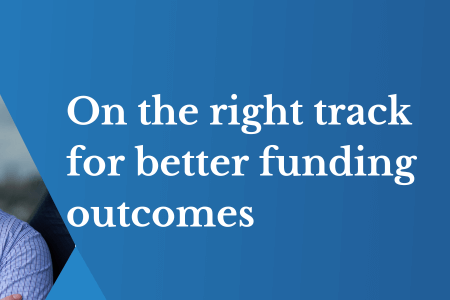Cessation of Payroll tax supplement causing issues for sector
March 25, 2015 | Aged Care Management

Funding sustainability is just one of the critical issues for the Australian aged care sector, as many providers have to carefully balance expenditure in order to deliver the required levels of care for residents.
Many South Australian providers are now up in arms, however, over the decision to cease offering the Aged Care Payroll Tax Supplement – a benefit that delivered some financial relief.
What happened?
From January 1 this year, the federal government announced that the supplement was no longer going to be paid to residential aged care providers, but that the extra $1.1 billion would be directed elsewhere, and deliver additional benefits.
According to the Department of Human Services, the funding is being routed back into:
- The general funding pool
- Plans to reduce operational red tape
- Aged care reforms focusing on efficiency
The industry responds
Australian Ageing Agenda explained that South Australian providers are now coming forward about the effects of this decision, stating that residents in for-profit facilities have seen substantial funding cuts of $2,350 per year.
The organisation noted that the decision was made based on a projected saving of $652 million over the next four years. Originally, the decision to cut the funding came from the Commission of Audit, which recommend the move. However, it was done so without consultation with the aged care sector.
The impact in South Australia and Victoria
Paul Carberry, the chief executive officer of LASA SA, explained to Australian Ageing Agenda that the Commission of Audit report had warned about the consequences of the cessation. It stated that some providers would likely struggle without the supplement.
He said that providers had told him that they had a "a responsibility to represent the 66,000 senior Australians who live in private facilities who now have a different funding deal to the other aged care residents, and we don't think that's something we can stay quiet about".
Chief Executive Officer of LASA Victoria Trevor Carr stated that in Victoria, the impacts are now having an "enormous impact on the residential aged care sector".
"The removal of the payroll tax supplement, effective from January 1 2015, is creating inequity in Australia's aged care industry where, nationally, 63 per cent of the sector are exempt," Mr Carr said.
He explained that this is leaving a payroll tax burden of $652 million over the next 3.5 years on providers. This is further strain on a sector that's already having to deal with multiple issues, including:
- A growing elderly population (and subsequent workforce shrinkage)
- Delivering the necessary levels of care
- Managing funding streams
The aged care industry needs to be in the best possible possible position to meet future care demands, with growth incentives and benefits. Mr Carr stated that taking away necessary funding was not the way to achieve this.
"In the short term, the aged care sector requires an investment of approximately $30 billion to provide an additional 105,000 aged care places by 2027," Mr Carr said.
"Aged care is the fastest growing health sector and it is essential that governments nurture the private aged care sector with favourable policy settings so it can adequately provide access, choice and sustainability for the future."
Challenges abound for the aged care sector – but it's a certainty that strong lines of funding will play an important role over the next few years.
Managing funding
There are many areas that providers need to focus on, especially when it comes to managing expenditure. This is where ACFI Optimisation can prove useful, as it's a tool specifically designed to help providers increase their funding, and also ensure that there is greater funding certainty.
What do you think are the biggest opportunities for success in the aged care industry today? Please contact us and let us know!


